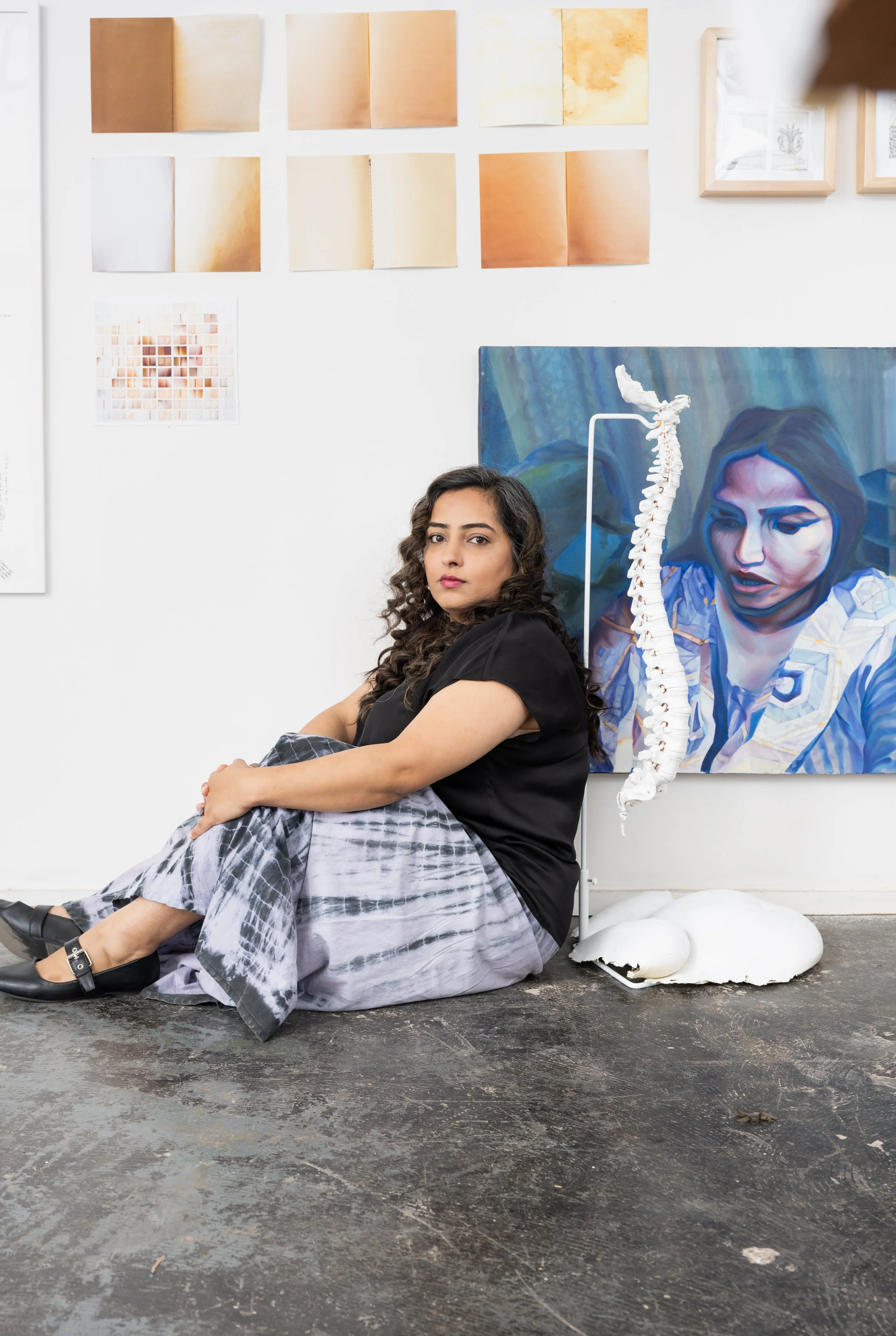bio
Madyha J. Leghari (b. 1991) is a visual artist, writer, and educator working between Lahore and Washington DC. Her practice often revolves around the instability of langauge and the body. In more recent works, she examines the tenuous and contradictory ethos of what is deemed “natural” in contemporary gestational and birthing practices
She earned a BFA at the National College of Arts, Lahore (2013) and an MFA from the Massachusetts College of Art and Design (2018) through a Fulbright Scholarship.
Madyha has been the recipient of the Nicholson Studio Residency; Bresler Residency at VisArts; Wherewithal Research Grant; Hamiltonian Artists Fellowship; Mansion Artist Residency; Delta Research Placement at the Flat Time House; Vasl Fiction Writing Mentorship; Siena Art Institute Artist Residency and the Murree Museum residency.
Madyha has exhibited globally at prestigious venues including the Kreeger Museum, Pera Museum, Karachi Biennale, University of Colorado Boulder, Bennington College, Sea Foundation, The Institute for Experimental Arts, Alchemy Film and Moving Image Festival, Images Festival, and others spanning the Americas, Asia, and Europe. Her work has found mention in the Washington Post, Artforum, and The News Pakistan, amongst others.
Madyha has written on art for a number of publications including ArtNow Pakistan and the Dawn Newspaper. Additionally, she has taught at institutions including the National College of Arts, Lahore, Massachusetts College of Art and Design, Boston, and the Beaconhouse National University, Lahore.










